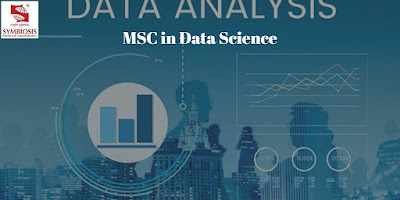M.Sc Data Science in India: Navigating the Future of Tech
Data science is one of the most sought-after fields in the 21st century. It involves collecting, analysing, and interpreting large amounts of data to generate insights and solutions for various domains such as business, healthcare, education, and social sciences. Data science combines the skills of mathematics, statistics, computer science, and domain knowledge to create value from data.
If you are interested in pursuing a career in data science, you might be wondering what are the best options to study this field in India. In this article, we will explore the benefits of pursuing an M.Sc data science in India, the eligibility criteria, the curriculum, the career prospects, and some of the best MSc data science colleges in India.
Why Choose M.Sc Data Science in India?
You should consider pursuing an M.Sc data science in India for many reasons. Some of them are:
- India is one of the fastest-growing economies in the world and has a massive demand for data scientists across various sectors. According to a report by NASSCOM, India will need 2.3 lakh data analytics professionals by 2023.
- India has some of the best educational institutions that offer quality education and research opportunities in data science. You can learn from experienced faculty members, collaborate with peers and industry experts, and access state-of-the-art facilities and resources.
- India offers a cost-effective option for studying data science compared to other countries. The average tuition fee for an MSc data science in India ranges from INR 50,000 to INR 3 lakhs per year, whereas the same degree in the US or UK can cost up to INR 20 lakhs per year.
- India has a rich and diverse culture that can enrich your learning experience and personal growth. You can explore the history, heritage, cuisine, art, and music of different regions and communities in India.
What are the Eligibility Criteria for M.Sc Data Science in India?
To pursue an MSc data science in India, you must have a bachelor’s degree in any discipline with at least 50% marks from a recognised university. However, some colleges may prefer candidates with a background in mathematics, statistics, computer science, engineering, or related fields. You may also need to clear an entrance exam or an interview conducted by the respective college.
What is the Curriculum for M.Sc Data Science in India?
The curriculum for an MSc data science in India varies from college to college but generally covers the following topics:
- Foundations of data science: This includes topics such as probability theory, linear algebra, calculus, discrete mathematics, optimisation techniques, etc.
- Programming languages and tools: This includes topics such as Python, R, SQL, Excel, etc.
- Data analysis and visualisation: This includes descriptive statistics, inferential statistics, hypothesis testing, regression analysis, clustering analysis, classification analysis, etc.
- Machine learning and artificial intelligence: This includes supervised learning, unsupervised learning, reinforcement learning, neural networks, deep learning, natural language processing, computer vision, etc.
- Big data and cloud computing: This includes topics such as Hadoop, Spark, MapReduce, NoSQL databases, AWS, Azure, etc.
- Domain-specific applications: This includes topics such as business analytics, healthcare analytics, social media analytics, geospatial analytics, etc.
What are the Career Prospects for M.Sc Data Science in India?
After completing an MSc data science India, you can work as a data scientist, data analyst, data engineer, machine learning engineer, business analyst, AI engineer, or consultant in various sectors such as IT, banking, finance, retail, e-commerce, telecom, healthcare, education, government, etc.
You can also pursue higher studies such as PhD or post-doctoral research in data science or related fields.
According to Payscale.com, the average salary for a data scientist in India is INR 7.1 lakhs per year.
What are some of the Best MSc Data Science Colleges in India?
Many colleges offer an M.Sc data science in India, but some of the best ones are:
- Indian Institute of Technology (IIT): IITs are among India's most prestigious institutes offering an MSc data science. The course lasts two years, and admission is based on GATE score and personal interview.
- Indian Institute of Science (IISc): IISc is another renowned institute that offers an MSc data science in India. The course duration is two years, and the admission is based on the JAM score and personal interview.
- Indian Statistical Institute (ISI): ISI is a premier institute that offers an MSc data science in India, focusing on statistics and mathematics. The course duration is two years, and the admission is based on an ISI admission test and personal interview.
- Symbiosis Institute of Geoinformatics: This is one of the leading institutes offering an AI and data science course focusing on geospatial analytics. The course is two years, and the admission is based on SNAP test scores and personal interviews.
- Chennai Mathematical Institute (CMI): CMI is a reputed institute offering an MSc data science in India focusing on mathematics and computer science. The course duration is two years, and the admission is based on a CMI entrance test and a personal interview.
Conclusion
Data science is a rewarding and exciting field that offers many opportunities for learning and growth. If you are interested in pursuing an MSc data science in India, you can choose from various colleges offering quality education and training. You can also explore the benefits of studying data science in India, such as the high demand, the low cost, and the rich culture. We hope this article has helped you understand the basics of MSc data science in India and inspired you to take the next step in your career.

Comments
Post a Comment